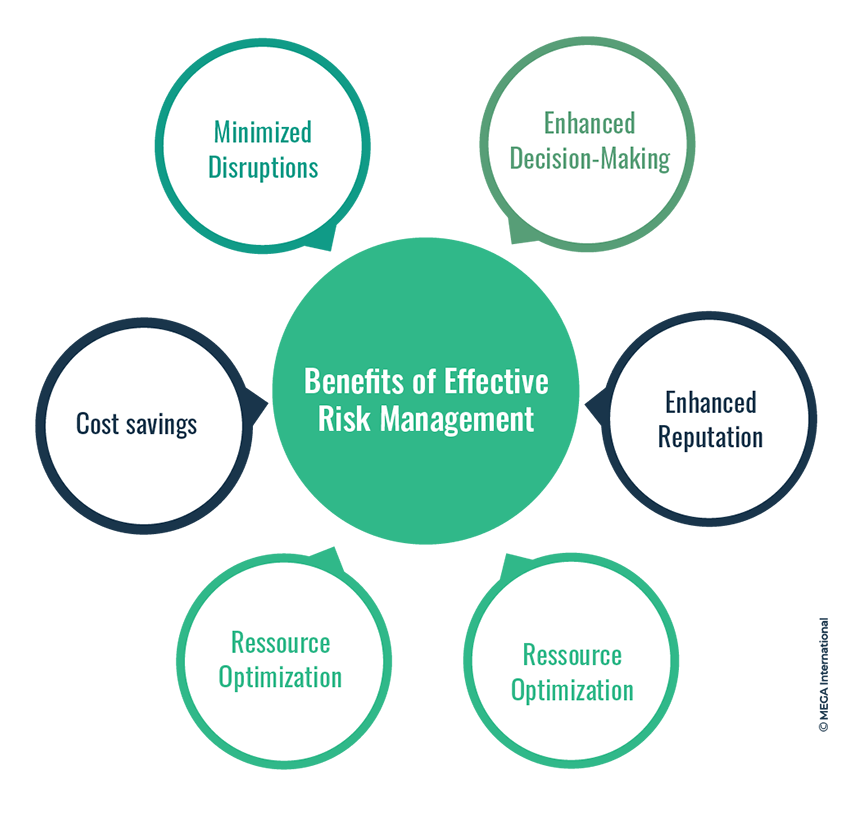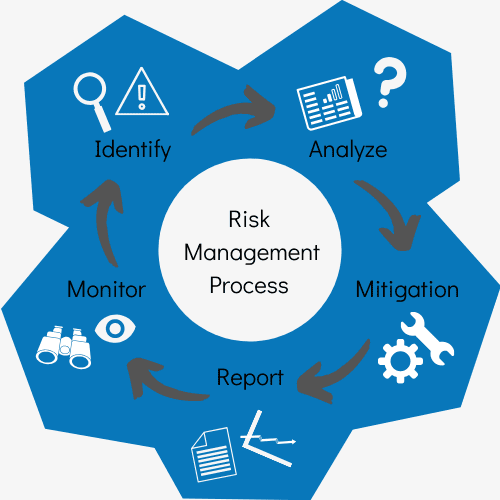Why the Importance of Risk Management Cannot Be Ignored in The Current Economy
Why the Importance of Risk Management Cannot Be Ignored in The Current Economy
Blog Article
The Crucial Significance of Risk Management in Getting Business Objectives
This is where Risk Management steps in, supplying an organized method to determining, evaluating, and mitigating potential obstructions to advance. As we discover the crucial function of Risk Management in accomplishing business goals, one can't aid but wonder: how does this equate into real-world success?
Comprehending the Principle of Risk Management in Service

The Important Role of Risk Management in Strategic Preparation
Integrating Risk Management right into tactical planning acts as a secure for organizations, anchoring their long-term strategies with a strong foundation of preparedness and durability. Risk Management provides a framework for expecting unpredictabilities and designing ideal responses, making certain the company's survival and success even in the face of difficulty. By integrating Risk Management into critical preparation, companies can transform these unpredictabilities right into chances for growth and technology.

Methods for Identifying, Assessing, and Prioritizing Threats
Browsing the complicated landscape of risks requires the application of particular methods for their prioritization, identification, and analysis. The procedure starts with Risk recognition, utilizing tools such as SWOT evaluation, which helps in identifying prospective hazards and opportunities. Next off, Risk evaluation is performed to ascertain the potential impact and chance of each Risk. Devices such as Risk matrices and impact-probability graphes are made use of for this. Ultimately, threats are prioritized based on their potential influence and possibility, permitting organizations to focus their resources on high-priority threats. This systematic method guarantees a detailed understanding of the Risk landscape, making it possible for companies to make enlightened decisions and properly manage threats click to accomplish their objectives - importance of risk management.
Guarding Organizational Operations Via Effective Risk Management
In business landscape fraught with uncertainties, reliable Risk Management plays an essential role in protecting organizational procedures. It serves as a protective guard, alleviating the unfavorable results of possible risks and making certain the smooth functioning of all processes. By determining and examining possible risks, Risk Management makes it possible for companies to develop robust contingency strategies. This precautionary technique help in keeping operational stability, also when confronted with unforeseen scenarios. Fundamentally, Risk Management is the lifeline that keeps the organizational operations afloat among unstable waters. It guarantees not only the survival yet the sustainable growth of an organization, making it a crucial device in attaining service objectives. For this reason, organizations should purchase comprehensive Risk Management methods to secure their operations.

Transforming Prospective Risks to Opportunities: The Power of Risk Management
While prospective threats could initially show up as barricades to organizational success, efficient Risk Management can navigate here transform them into chances. A positive approach to run the risk of Management entails determining, analyzing, and prioritizing risks to create strategies that turn them into possible benefits. This process necessitates the growth of a risk-aware society within the company, motivating individuals to view dangers as potential stimulants for modification and development, rather than plain dangers. importance of risk management. Through this lens, prospective dangers come to be opportunities to innovate, enhance procedures, and strengthen durability. Hence, by leveraging the power of Risk Management, organizations can not only guard their procedures yet likewise stimulate development and attain their goals in an unforeseeable business atmosphere.
Instance Studies: Success Stories of Risk Management Driving Organization Objectives
Successful implementation of Risk Management approaches has actually yielded outstanding results in various companies, underscoring the values of this strategy. Multinational business like Microsoft and Google, for circumstances, have actually leveraged Risk Management to minimize click here for more threats and manipulate opportunities, driving their business goals ahead. These examples highlight how effective Risk Management can not just guide organizations clear of prospective risks yet likewise lead them towards their tactical goals.
Conclusion
In verdict, Risk Management is essentially important in attaining business objectives. By including Risk Management right into calculated planning, companies can much better navigate uncertainties, safeguard procedures, and capitalise on possibilities, consequently lining up with lasting goals.
At its core, Risk Management is the procedure of recognizing, assessing, and dealing with potential risks that can adversely affect an organization's goals or procedures. Next, Risk analysis is carried out to determine the possible impact and likelihood of each Risk. Threats are prioritized based on their prospective effect and probability, enabling organizations to concentrate their resources on critical threats. By recognizing and evaluating possible threats, Risk Management makes it possible for organizations to develop durable backup plans. A proactive method to risk Management includes recognizing, evaluating, and prioritizing risks to design strategies that turn them into possible benefits.
Report this page